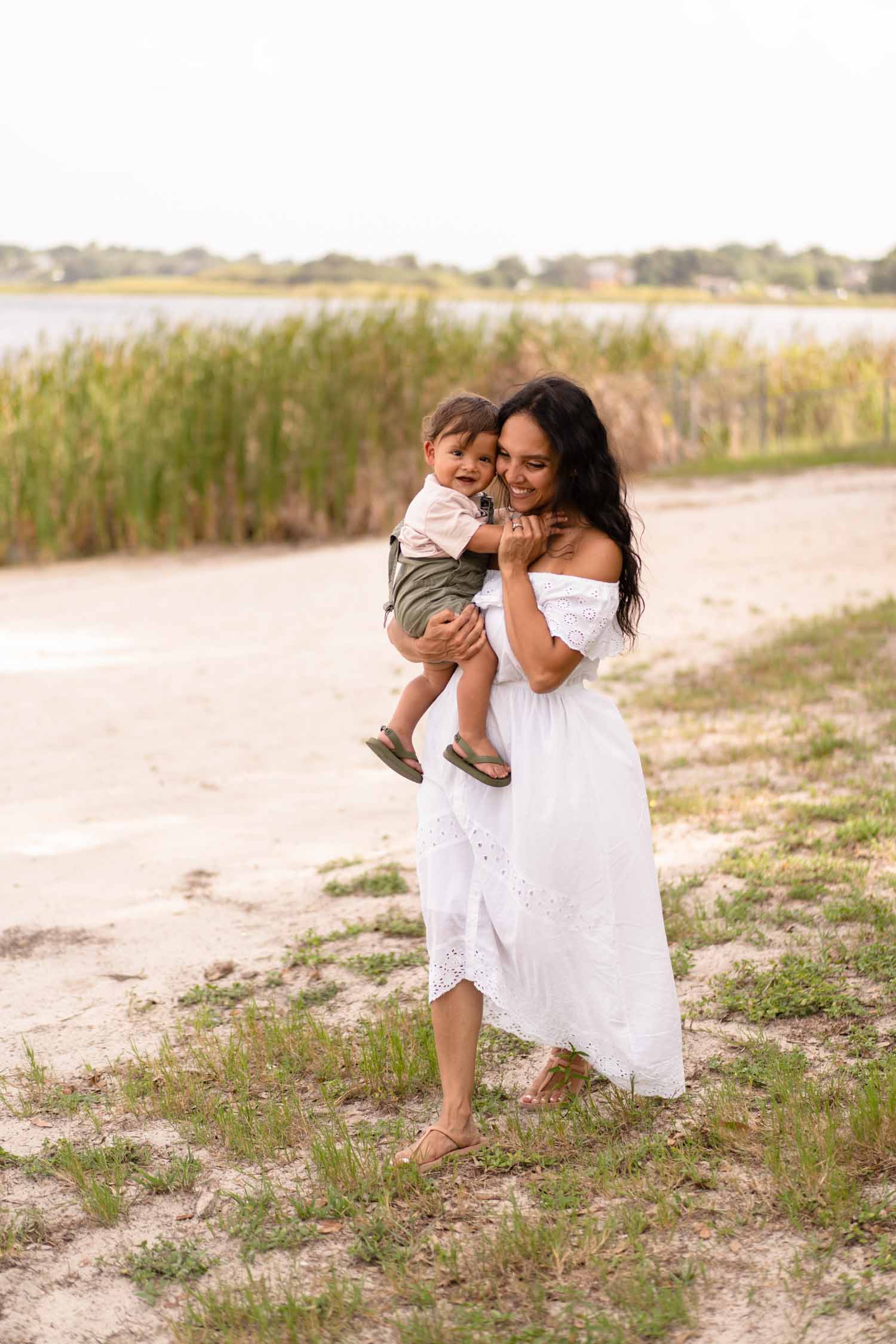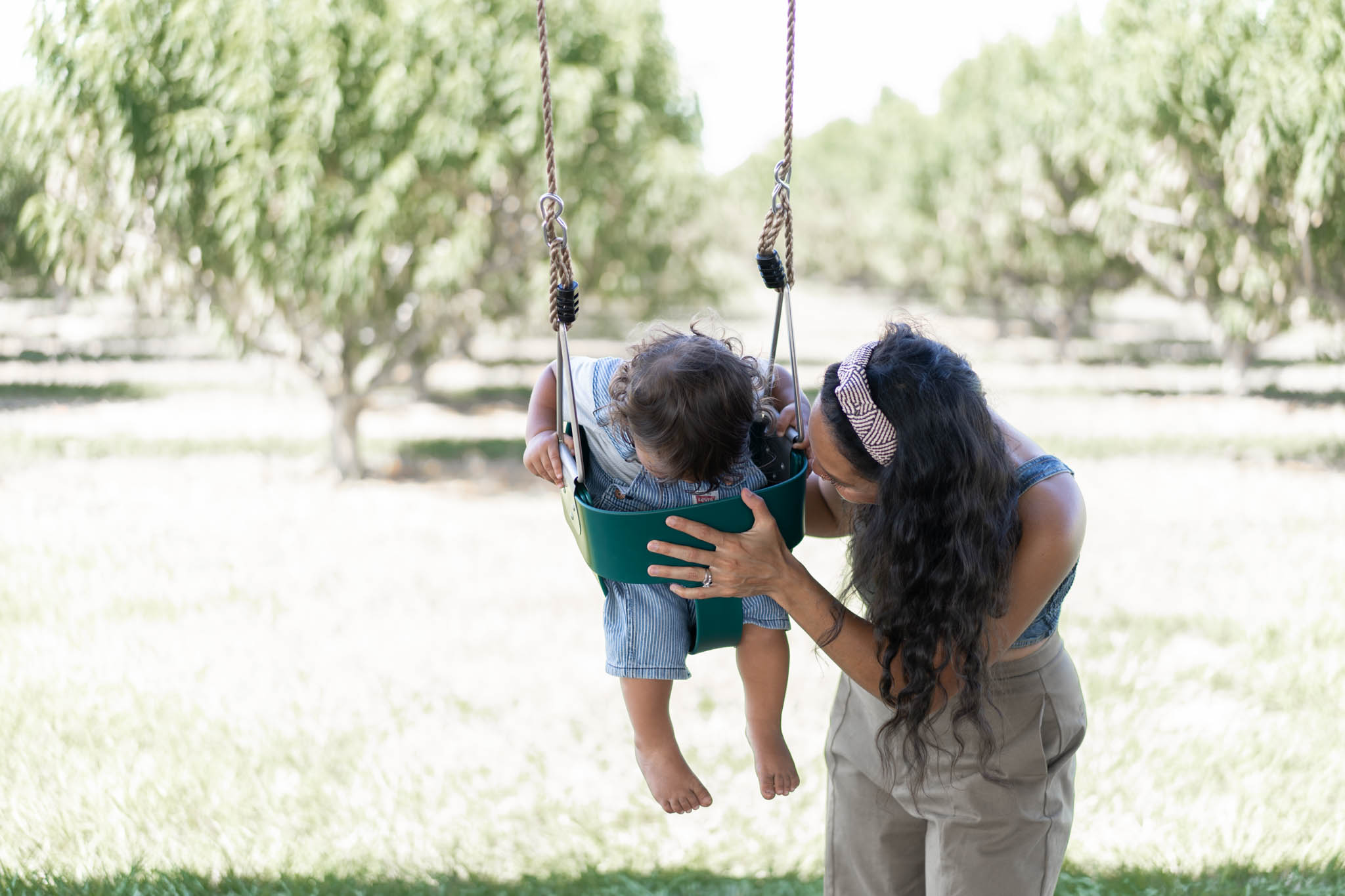What Is Gentle Parenting?

Gentle Parenting / Attachment Parenting
Gentle parenting is a parenting style that focuses on creating a strong emotional bond between parent and child. Many parents think this is permissive parenting but it is actually very intentional parenting. It is based on the belief that children are best able to thrive when they feel loved and supported. Gentle parenting is about meeting your child’s needs with empathy and understanding, rather than punishment or power struggles. When you take a gentle parenting approach, you are more likely to build a lasting relationship with your child built on trust and respect.
At its core, gentle parenting is about understanding and responding to your child’s needs as best you can, using empathy and compassion. It can be summed up with the three R’s: Respect, Responding Appropriately, and Reasoning With Children. Gentle parenting isn’t always easy, but it can be incredibly rewarding. If you’re interested in learning more about this parenting style, keep reading!
Providing A Safe And Nurturing Environment

One of the most important things you can do as a parent is to provide a safe and nurturing environment for your children. This means creating an atmosphere of love and support, where your children feel valued and respected. It also means setting boundaries and limits gently and lovingly. When you provide a safe and nurturing environment for your children, you are helping them to feel secure and loved. This, in turn, can help them to develop a positive sense of self and build healthy relationships with others.
If you’re interested in gentle parenting but aren’t sure where to start, try creating a family mission statement. This is a document that outlines your family’s values and goals. It can be a helpful way to ensure that everyone is on the same page when it comes to gentle parenting. I highly recommend sitting down with your partner and doing this. I was born and raised in Chicago IL, to a beautiful hispanic woman. Gentle anything was not in my upbringing. There was a lot of cycle breaking and unlearning I had to do as a parent.
Creating a safe and nurturing environment for your children doesn’t have to be complicated. Just remember to focus on patience, love, respect, and understanding. With these core values in mind, you’ll be well on your way to gentle parenting. Remember, it’s not about being a parenting expert or the perfect parent, but a parent who loves and is intentional in every aspect of child rearing.
Listening To And Respecting The Child
Gentle parenting focuses on listening to and respecting your child. This means that you should take the time to listen to what they have to say, and try to understand their perspective. Don’t be afraid or offended by their emotions. We expect or demand so much from our littles when most times we can’t even display staying calm, or exercising self-control. The gentle parenting style means that you should respect their feelings and wishes, even if you don’t agree with them. When you show your child that you respect their thoughts and feelings, you help to build a strong emotional bond between you.I
If you’re not used to listening to and respecting your child, it can be difficult to know where to start. Here are a few tips:
– Make sure that you are truly listening to your child, and not just waiting for your turn to talk. Try to put yourself in their shoes, and see the world from their perspective.
– Don’t criticize or judge your child. Even if you don’t agree with them, try to listen without judgment.
– Respect your child’s feelings, even if you don’t understand them. It’s OKAY to not agree with your child, but try to be understanding and supportive.
– Avoid power struggles. Gentle parenting is not about winning or losing, it’s about working together to meet the needs of your child.
Giving Children Choices And Autonomy

Another important aspect of gentle parenting is giving children choices and autonomy whenever possible. It’s important to remember that children are capable of making their own decisions, and they should be treated as such. I’m not talking about gender here. If your child has a penis, he is a boy. If your child has a vagina, she is a girl. I’m talking about decisions like what to have for breakfast, or what they’d like to wear that day. For example, I did not pierce my daughters ears until they gave me their consent. One day they noticed mommy’s ears full of piercings and they wanted one. It was a beautiful moment we shared together when they were ready.
Giving children choices and autonomy can be a difficult concept for some parents to wrap their heads around. After all, isn’t it our job as parents to make decisions for our children? While it’s true that parents are responsible for their children, that doesn’t mean that we should be making all of the decisions for them. Gentle parenting is steering clear of the authoritarian style of parenting. Instead, we should be guiding them and helping them to make their own decisions.
Here are a few tips for giving children choices and autonomy:
– Allow your child to make small decisions whenever possible. For example, let them choose what they want to wear or what they want to eat.
– Encourage your child to express their opinions and ideas. Listen to what they have to say, and take their opinion into account when making decisions.
– Avoid making decisions for your child that they are capable of making themselves. For example, don’t choose their clothes for them or tell them what to do. Instead, let them make their own decisions and choices.
– Give your child the opportunity to try new things. Encourage them to explore their interests, and be supportive of their efforts.
– Respect your child’s independence. Let them do things on their own, and allow them to make their own choices.
Using Positive Discipline Rather Than Punishment
One of the most important aspects of gentle parenting is using positive discipline rather than punishment. Punishment can be harmful to children, both physically and emotionally. It can also damage the parent-child relationship and make gentle parenting more difficult.
Positive discipline is a much more effective way to deal with unwanted behavior. When you use positive discipline, you are teaching your child what you want them to do, rather than punishing them for what they did wrong.
Here are a few tips for using positive discpline:
– Redirection.
– Positive Reinforcement.
– Avoid using physical punishment, such as spanking or hitting.
– Selective Ignoring
– Single Word Reminders
Punishment is not effective in gentle parenting, and it can be harmful to children. If you want to gentle parent effectively, focus on using positive discipline rather than punishment. It’s a much more effective way to deal with bad behavior, and it will help to build a stronger relationship with your child. I remember as a child listening to most instruction out of fear not because I agreed with what was being asked of me but because I knew if I didn’t stop whatever was bugging my parent, then I’d get my butt whooped. We don’t want to fear and threaten our children into making good decisions. Rather we want to equip them with all the tools necessary to make good ones.
Yelling And Hitting
Yelling at children is a common form of discipline, but it’s not effective. However, it can actually damage the parent-child relationship. Yelling creates an environment of fear and intimidation, which can make children feel unsafe and unable to trust their parents.
In addition, yelling and hitting can have a negative impact on children’s brain development. How exactly? When a child is yelled at or hit, they experience a rush of stress hormones. This can cause damage to the hippocampus, which is responsible for memory and learning. The hippocampus is also responsible for regulating emotions, so damage to this area can lead to emotional problems later in life.
Research has shown that yelling and hitting can cause changes in the brain that can lead to unhealthy aggression. So, not only are these methods of discipline ineffective and harmful, but they can also have long-term consequences for children. My parenting was revolutionized when I took a deep dive into toddlers and learned all about their emotional processes. There are certain things they just can’t understand at a certain age and that helps put things into perspective for you as a parent.
If you want to gentle parent effectively, avoid yelling and hitting. Use positive discipline instead. When you use positive discipline, you are teaching your child what you want them to do, rather than punishing them for what they did wrong. And when you use gentle discipline techniques, you are helping your child learn how to regulate their emotions. It’s a more effective way to deal with unwanted behavior, and it will help to build a stronger relationship with your child. Children who are constantly yelled at or hit may have trouble regulating their emotions and controlling their aggression later in life.
Establishing Clear Limits And Expectations
A distinct way to practice gentle parenting is establishing clear limits and expectations for your child. Children need boundaries in order to feel safe and secure. When parents establish clear expectations, it helps children to understand what is expected of them. This can reduce frustration and confusion, and it can also help to prevent bad behavior.
Furthermore, setting clear limits and expectations can help to promote positive behavior. When children know what is expected of them, they are more likely to meet those expectations. You will see them thrive! And when children feel like they are able to meet expectations, they are more likely to feel proud of themselves and motivated to do even better.
So, how can you establish clear limits and expectations for your child?
– First, make sure that you are consistent in your expectations. If you expect your child to brush their teeth every night, make sure that you enforce that expectation every night.
– Second, make sure that your expectations are age-appropriate.
– Third, explain your expectations to your child in a clear and concise way. Use words that they can understand.
– Fourth, be patient and gentle when enforcing your expectations. If your child doesn’t meet your expectations, don’t yell or hit them. Try using positive reinforcement instead.
Gentle parenting is all about setting firm yet compassionate boundaries. And when you do that, you’re helping your child to feel safe, secure, and loved.
Teaching Problem-Solving Skills

Problem-solving skills are another important aspect of gentle parenting. When children know how to solve problems effectively, they are less likely to act out in frustration. They will also be more likely to have a positive outlook on life. Teaching children how to self-regulate their emotions will serve them greatly in life. Children are amazing and with positive parenting and gentle encouragement, you’ll experience content, thriving children.
How can you teach your child problem-solving skills?
– First, model problem-solving yourself. If you get frustrated easily, your child will learn how to handle frustration by watching you.
– Second, give your child opportunities to solve problems. Let them figure out how to fix things on their own.
– Third, provide positive reinforcement when your child solves a problem. Let them know that you are proud of them for finding a solution.
– Fourth, help your child to come up with strategies for solving problems. If they are struggling to solve a problem, offer them some help.
– Fifth, teach your child how to be patient when solving problems. Sometimes it takes time to find the right solution.
Problem-solving skills are essential for children of all ages. When you teach your child how to solve problems effectively, you’re setting them up for success in life.
Gentle Parenting Resources / Gentle Parenting Book
I’d like to share a few of my personal favorite books that support and encourage my gentle parenting methods.
- The Whole Brain Child
- No Bad Kids
- Parenting From The Inside Out
- Peaceful Parent Happy Kids
- The Conscious Parent
- The Attachment Parenting Book
- No-Drama Discipline
- Jesus, The Gentle Parent
- Gentle Discipline
In Conclusion
Gentle parenting can be quite personal. At its core, gentle parenting is all about meeting the needs of your child in a way that is loving, supportive, and respectful. That might mean different things for different families. Above all else, remember that gentle parenting is about being gentle with both your child and yourself. Please feel free to leave any questions you may have in the comment section below. This is not about perfection and all about being intentional with how you raise up your precious children.
